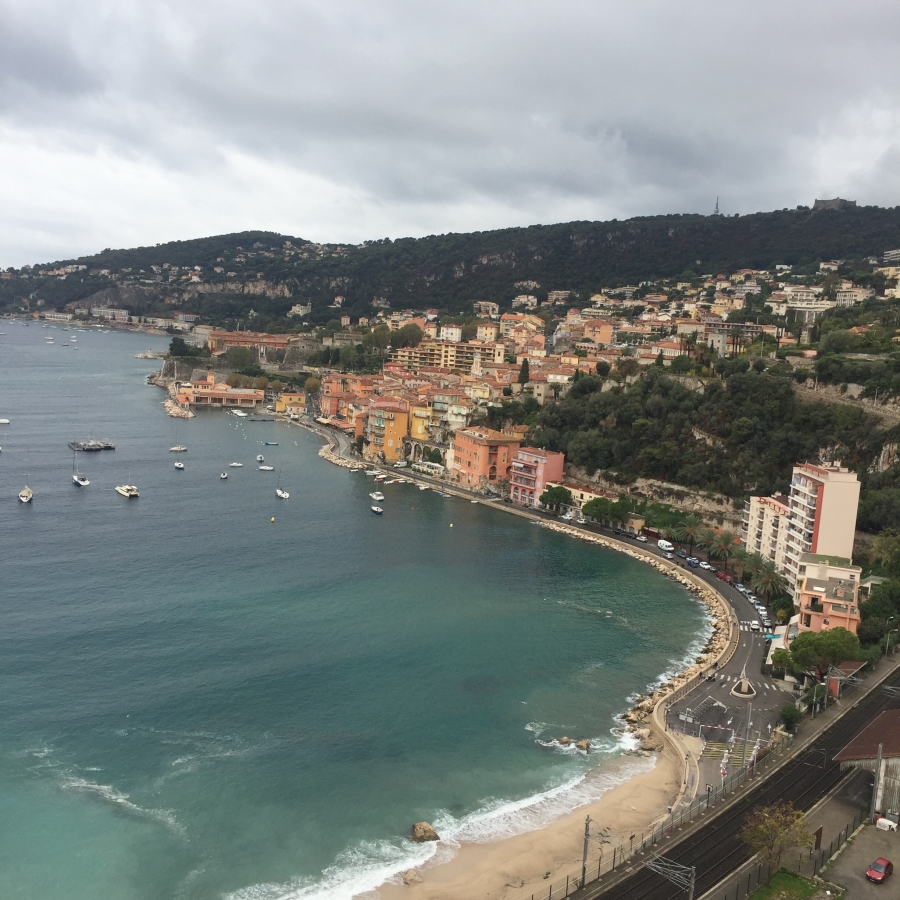When walking around in highly frequented areas of the Cote d’Azur there are no shortage of restaurants boasting assurances of authenticity and regional cuisine, but how many of the claims provide diners with accurate representations of the regions culinary history and traditions? Recently while walking around the old city in Nice with

my cousin and his partner we found ourselves wandering in search of a meal that could provide me with an accurate representation of Nice’s unique culinary history, with its roots in provence and strong influence from neighboring Italy. Walking along one cobble stone street to another in our off season search each restaurant my dining companions had staked out by word of mouth or experience was either closed for the season or magically “out of food” for the day. Beginning to feel disheartened we set our sights on a restaurant with an inviting exterior and a menu listing iconic local dishes like Salade Niçoise, Ratatouille, Socca and Legume Farcis as well as a Niçois tasting platter. Feeling hungry and hopeful but somewhat suspicious of the menus english translations and lack of french clientele we took our seats. After ordering then receiving our tasting platers and taking small bites of our bland off white legumes farcis it became clear to us all that the restaurants goal was not to celebrate the rich culinary history of the region but to fulfill the necessary task of quickly feeding the millions of tourists that annually visit the cote in a barely recognizable rendition of the traditionally rich and saturated flavors of Provençal and Niçois cuisine.
France is a nation revered for its culinary and cultural histories, the countries international reputation draws in around 87 million tourists a year making it the worlds most visited country. With the influx of visitors the country hosts yearly comes an industry that operates on tourist spending and the fact that these visitors must eat. The rapid acceleration of globalization in recent years by means of transport, communication and technology have brought about extreme changes in food production and consumption. Though questions of authenticity in food are highly contested examining the impacts of globalization on regional culinary tradition is important. In The University of Surrey’s paper Globalisation and Food Consumption in Tourism they reinforce that “There is a concern that cultural imperialism and Mcdonalidisation may lead to homogenizati
on that can result in a “global palate” as well as a “global cuisine”. The homogenizing force of globalization is thus commonly seen as a threat to the close connection between food and place, or as Trubeck puts it, the taste of place or ‘terroir'” Is it possible for terroir to exist in dishes that are altered to become more suitable and accessible to foreign palettes, with these shifts is there an emergence of a new terroir muddled and impacted by questions of globalization possible or is it devoid of any taste of place?

When traveling, tourists often search for senses of novelty while at the same time scouting the security that comes with familiarity. In recent years questions of Authenticity and tradition have been at the forefront of conversations regarding food. Is cuisine that exists to serve tourists palettes a threat to regional gastronomical traditions or an entity that can exist within itself without tainting traditional and historical meal preparations? This question is not one that is easily answerable being that the notion of “authentic” food is so highly contested and many argue that the nature of food and culinary traditions
are never static due to constant shifts in population, technology and tradition. Can France’s tourist food industry remain solely a tourist industry or will the “globalization of taste” have impacts on the palette of the nations citizens and shift the nations own tastes and practices?